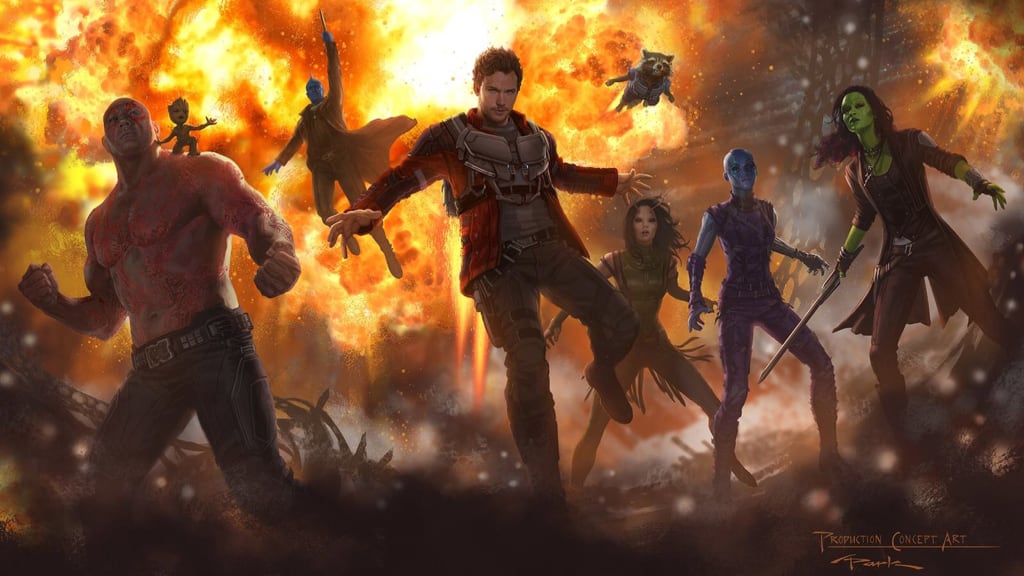
Guardians of the Galaxy is a firm fan favorite. It has all the hallmarks of your typical #Marvel movie, and yet it also retains the style of its writer & director James Gunn. Before the film's release, fans and critics alike had wondered whether there was an appetite for a superhero movie featuring a walking tree and a talking raccoon; but the incredible quality of the film meant that these strange, whimsical ideas were tremendously effective. It came as no surprise when Marvel announced Guardians of the Galaxy Vol. 2, to be released next year.
Much like Guardians of the Galaxy itself, its writer & director James Gunn is an unusual figure in Hollywood, particularly for his use of social media. He's well-known for his Facebook page, where he happily chats with fans and answers their questions. In one FAQ, and in a later conversation on his Facebook page, he's revealed something quite unique about Guardians of the Galaxy...
When is 'Guardians of the Galaxy Vol. 2' Set?
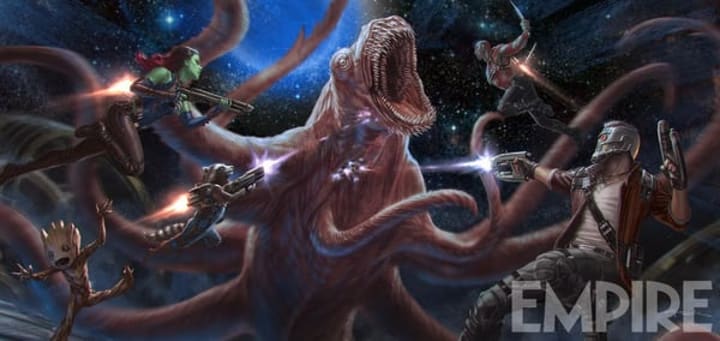
Beautiful concept art for Vol. 2! [Credit: Marvel Studios (released to Empire)]
In preparation for Captain America: Civil War, #KevinFeige switched up Marvel's continuity. He wanted to have a teenage Spider-Man, one who'd grown up in a world of superheroes and had more than a little 'hero worship' for Tony Stark. So he declared that each Marvel movie was based in the year of its release. In 2008, Tony Stark revealed to the world that he was Iron Man. In 2012, the Chitauri invaded, and were driven back by the Avengers. So, for the first time, we had a solid chronology of the #MCU.
It was a smart move. It meant that Peter Parker was 15 by the time of Civil War - and had therefore only been seven or eight when Iron Man stepped out on to the world stage. Peter had only been 11 or 12 when the Chitauri invaded, and the Avengers became world-renowned superheroes. He'd literally grown up with superheroes!
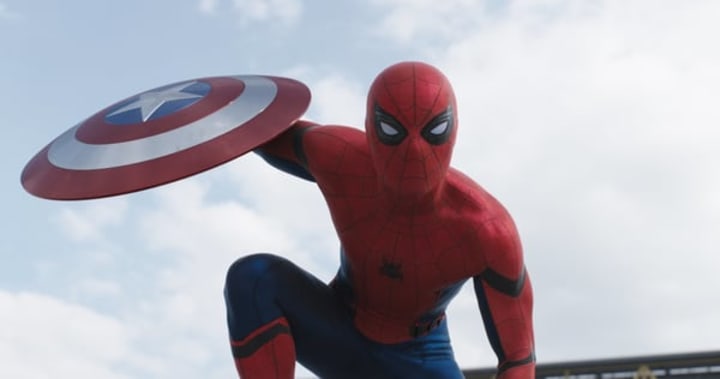
An already famous scene! [Credit: Marvel Studios]
Guardians of the Galaxy, it seems, stands apart from that. In one FAQ, Gunn stated:
- How long after Vol. 1 does Vol. 2 take place? Around a couple of months.- A couple of months EARTH time or, maybe it's, like, years, out in space because of science fiction? Like a couple of months Guardians-time. Like, if Peter Quill gets a haircut once a month, he'd have two haircuts between films.
Guardians of the Galaxy was released in 2014, with the sequel to be released in 2017. In spite of Feige's ruling, the gap between the two films is "around a couple of months" - and, as Gunn later clarified, Thor's vision of the Power Stone in Avengers: Age of Ultron means the first movie is fixed at 2014.
Now, one point is worth noting; we have no way of knowing how the laws of relativity apply to alien technology in the MCU. So it's possible that years have passed for us, while only months have passed for the Guardians. Still, Gunn's comments to date indicate a very different approach to continuity to the one you find in the wider MCU.
How much control does James Gunn have?
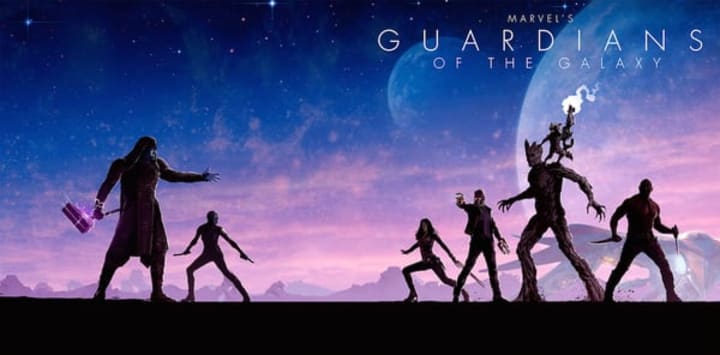
A beautiful limited edition cover for Guardians of the Galaxy. [Credit: Marvel Studios]
It's not easy writing or directing for a Cinematic Universe. Every film has to intersect with the next one; character progression has to be logical across the franchise, meaning that writers and directors are more restricted than they're used to. That wasn't really an issue with Marvel's Phase 1, where the studio was still finding its feet; the post-credits scene of The Incredible Hulk didn't fit with the MCU's ultimate direction, and Marvel had to release a short one-shot (The Consultant) to fix the continuity problem. But The Avengers set up a much clearer trajectory, with the appearance of Thanos and a nod to the Infinity Gems. From that point on, Marvel was committed to an overarching narrative that simply had to work.
It's resulted in real problems for some writers and directors. Joss Whedon struggled to make it work in Avengers: Age of Ultron, and the experience exhausted him. Edgar Wright ditched Ant-Man in frustration, his vision clashing with that of Kevin Feige. Feige's long-term vision is essentially non-negotiable; you sign on to a Marvel movie, you sign on to Feige's vision.

It's all coming to Thanos! [Credit: Marvel Studios]
However, this is not the case for James Gunn. Take a look at one of his Frequently Asked Questions:
- How much of a story did Marvel Studios give you when you were started writing Vol. 2? Nothing. The film, story, and character arcs are all mine.
Where other Marvel franchises have certain built-in restrictions, James Gunn has been given free rein. The original Guardians of the Galaxy was viewed as something of an aside to the mainstream continuity, so he started off with a lot more freedom than other Marvel writers / directors. Likely in part because of that film's success, Gunn has essentially been given a blank slate for Guardians of the Galaxy Vol. 2. Where other Marvel writers and directors have needed to ensure they hit various plot-points (for the sake of the broader MCU narrative), Gunn has had complete freedom.

Gunn imagines a next question:
- Wait a second. How do you know where the characters are going if the MCU is all connected? Fortunately, the Guardians are somewhat outside of all that, so they have complete freedom. At least at this point. Of course any stories afterwards will have to make do with whatever happened in Vol. 2.
Most of the MCU is Earth-based, meaning characters can run into one another (the best cameo to date in my view being Anthony Mackie's appearance in Ant-Man). The Guardians are different; there's no chance Chris Pratt's Star-Lord is going to pop up in Spider-Man: Homecoming, for example. That means that story of the Guardians is boxed off from the rest of the MCU — for now. That's going to change with Avengers: Infinity War; with Thanos coming to Earth, the Guardians and the Avengers will be crossing paths in 2018 or 2019. But the Russo brothers will have to navigate whatever Gunn sets up in Vol. 2...
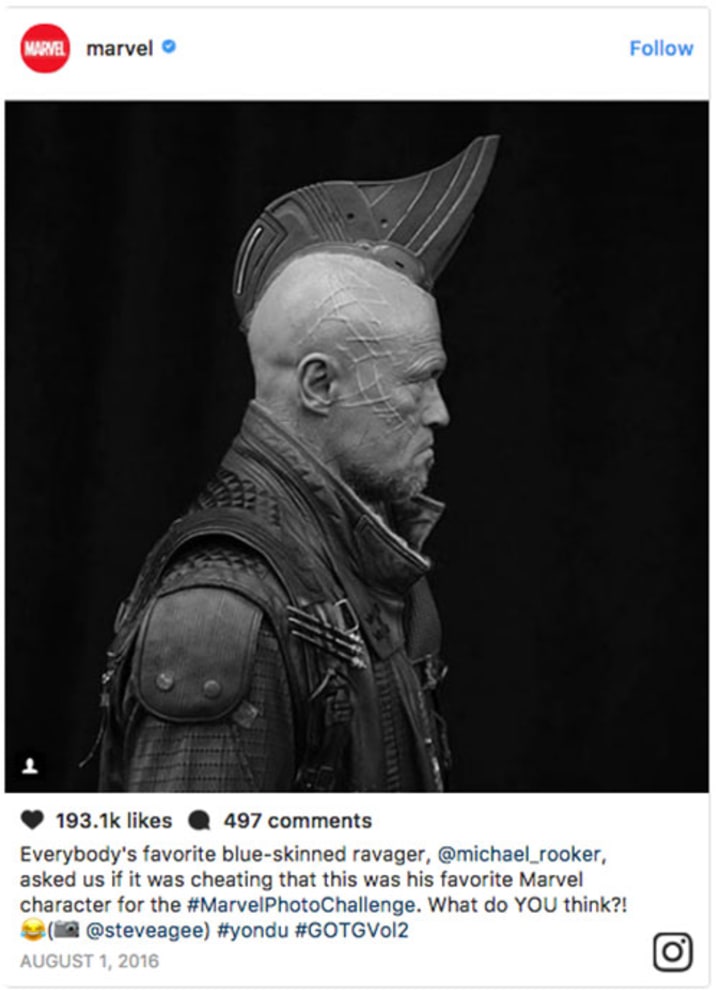
That may not affect Gunn's story, though. In response to questions and comments on his post, Gunn added another useful piece of information:
"It's set up as a duology as far as I'm concerned."
Gunn has the story for Guardians of the Galaxy Vol. 2, and then his tale is told. He's openly undecided about whether or not to return for a third volume (should one be made); it's quite possible Guardians of the Galaxy Vol. 3 would be handed over to another writer and director (just as, say, Joss Whedon isn't heading up Avengers: Infinity War any more). That said, the fact that Gunn has been given such freedom suggests that Kevin Feige is letting this part of the franchise stand on its own two feet, and doesn't have the same kind of long-term plans he has for the rest of the MCU.
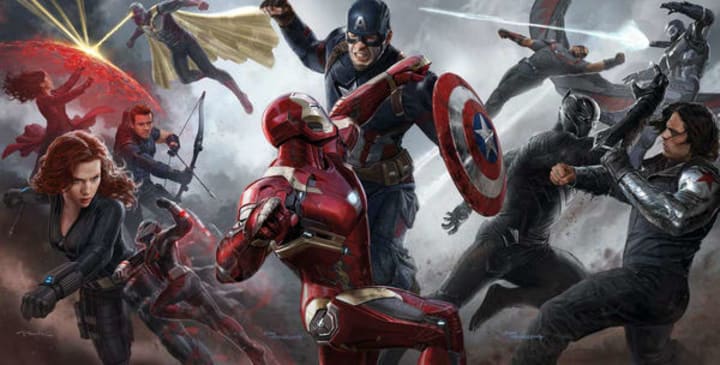
Concept art for Captain America: Civil War. [Credit: Marvel Studios]
Again, Gunn imagines a fan question:
- Well, I'm finding that very hard to believe. If Marvel gives you so much freedom, what if you decided to kill off all the characters?!I wouldn't decide to kill off all the characters, just like I wouldn't decide to turn them all into toasters halfway through the film. And if I DID kill them all, or turn them into toasters, I'm sure my freedom would be rescinded. But Marvel and I have the same goal for Guardians Vol. 2 - to make the biggest, most incredible spectacle film of all time, that honors the characters, and surprises audiences in a positive way. So until I screw up, they allow me to do my thing. And I'm grateful for that opportunity.
In other words: Marvel is trusting James Gunn to do his own thing. He has complete freedom to tell his own story, more than any other writer or director working in the MCU. No wonder he's also working with the rest of the team on Avengers: Infinity War, suggesting he'll retain control and influence.
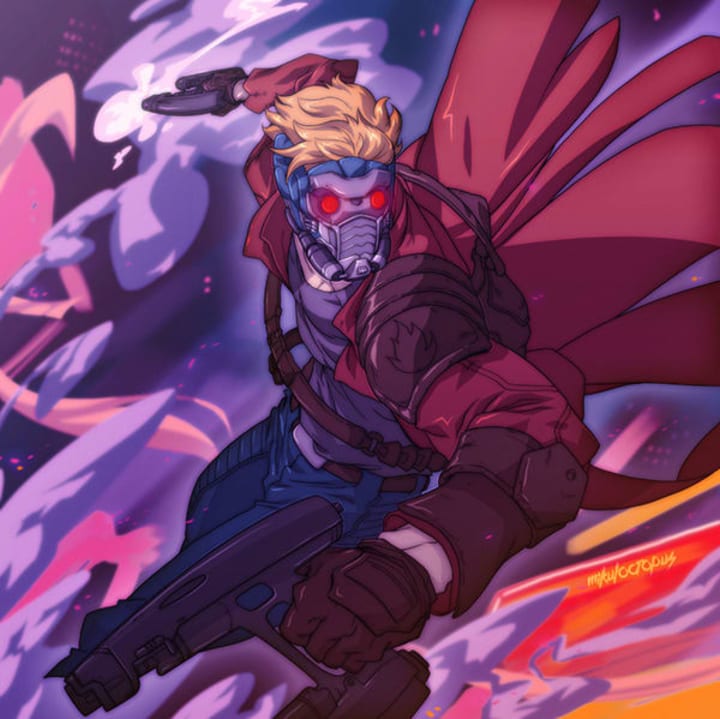
Guardians of the Galaxy fan art via behance.net/mikuloctopus
As you can see, Marvel has given James Gunn an impressive amount of creative freedom. Allowing him to do his own thing is a smart move; Gunn's creativity and unique style made the first Guardians of the Galaxy a success. Marvel is clearly hoping that history will repeat itself - and personally, I think that's a safe bet.
(Sources: Facebook, 09/06/2016, 01/28/2017)
About the Creator
Tom Bacon
A prolific writer and film fan, Tom has a deep love of the superhero genre.


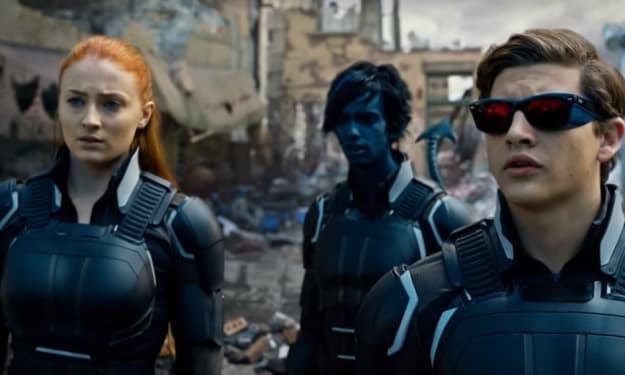

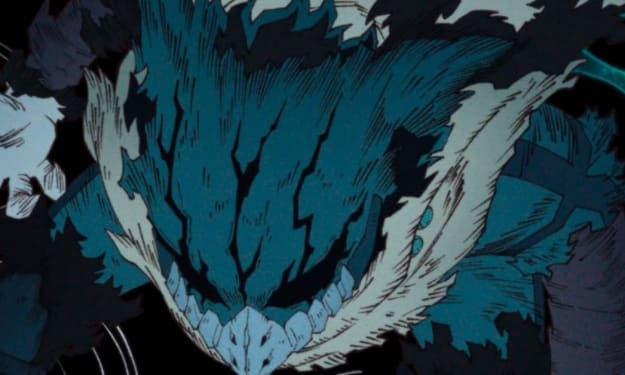

Comments
There are no comments for this story
Be the first to respond and start the conversation.